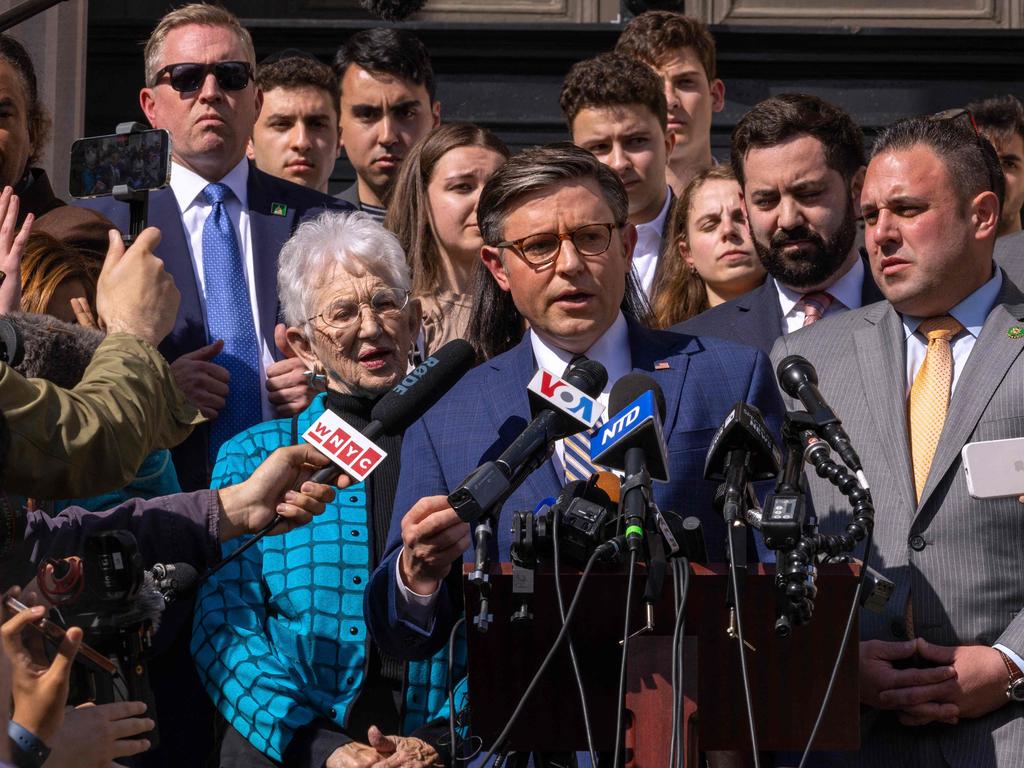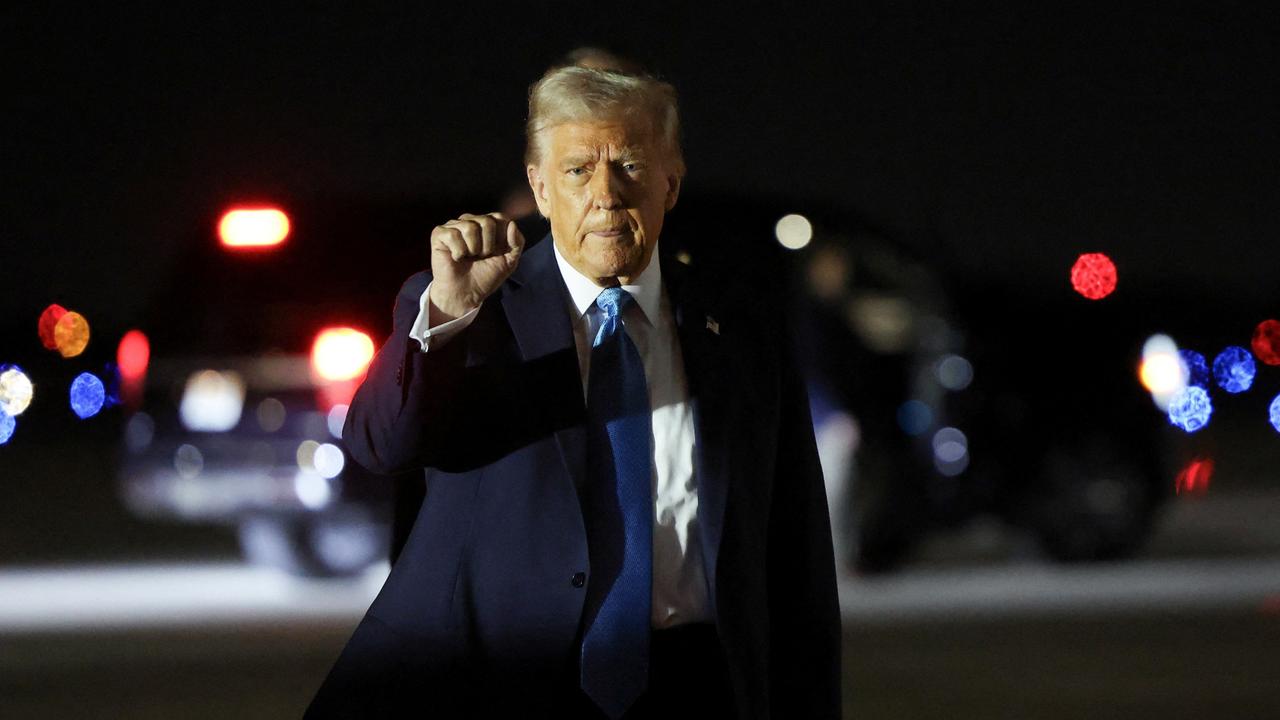How Mike Johnson could lose US Speaker vote and what happens then
With the new House of Representatives set to meet for the first time later today, it is far from certain incumbent Speaker Mike Johnson will secure the votes he needs to keep the gavel.
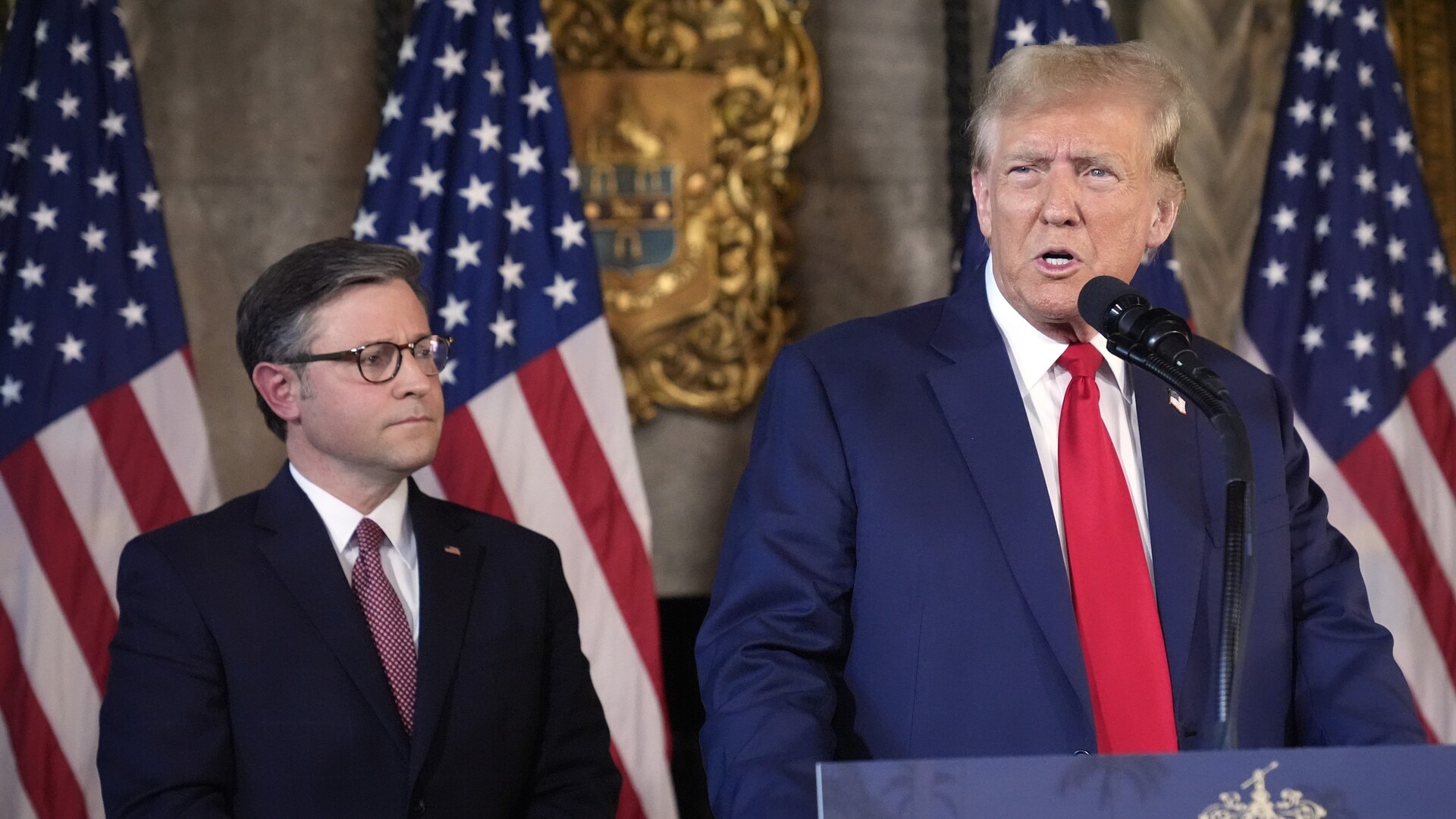
The new House of Representatives meets for the first time on Friday (overnight AEDT). But before lawmakers can do anything else, they must elect a speaker. It is no easy task, given Republicans’ razor-thin margin and internal divisions. Even though President-elect Donald Trump has thrown his support behind incumbent Speaker Mike Johnson (R., La.), it is far from certain that Mr Johnson will be able to secure the votes needed to keep the gavel.
If House Republicans can’t swiftly unite to install Mr Johnson or another person as speaker, the ensuing chaos could prevent Congress from functioning and – if the drama drags on long enough – potentially threaten Mr Trump’s ascension to the presidency on January 20. In that admittedly far-fetched scenario, a 91-year-old senator from Iowa would become president instead.
What happens on January 3, and how does the speaker vote work?
Under the Constitution, newly elected and returning House members gather in the Capitol. First they have to elect a speaker, which requires a majority of those who vote for a particular person – abstaining or voting “present” doesn’t count in the calculations. The declared candidate for Republicans, who will hold a narrow majority in the new session, is incumbent Johnson.
The vote is by roll call. The clerk of the House from the previous Congress, who presides, will call out, in alphabetical order, the names of members-elect, who will then state the name of their preferred candidates. If no one receives a majority of votes cast for a named candidate, more ballots will be held until someone wins a majority.
When Rep. Kevin McCarthy (R., Calif.) ran for speaker in January 2023, he wasn’t able to secure the gavel until the early hours of the morning on January 7, after four gruelling days of voting and 15 ballots.
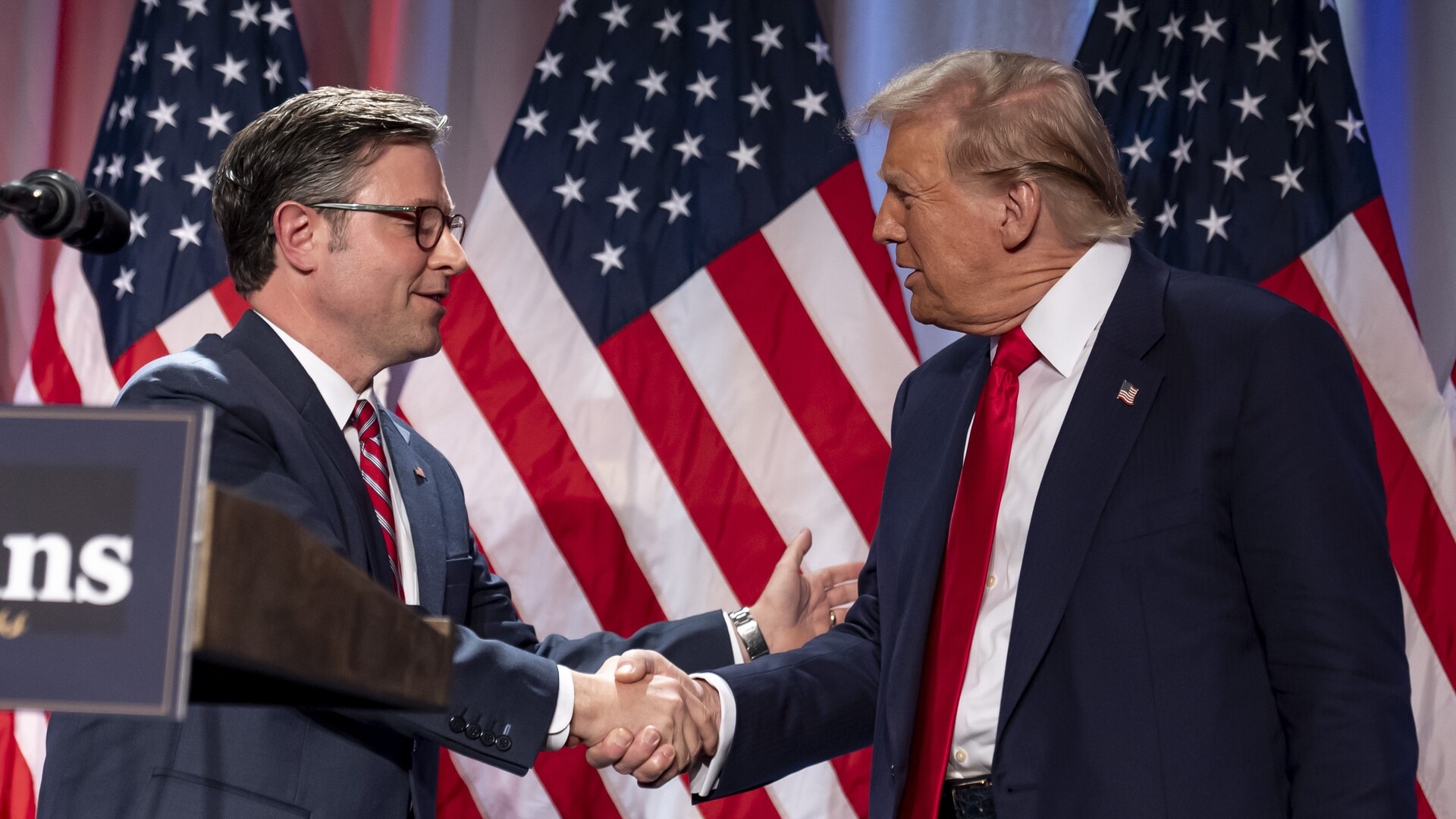
Why might some Republicans oppose Mr Johnson for speaker?
Some House Republicans have been upset with party leaders over cutting deals with Democrats on government-funding bills, as well as other issues such as aid for Ukraine. With Republicans now in charge of both houses of Congress and the White House, critics will have to decide whether to try to sink Mr Johnson and risk a chaotic opening to Mr Trump’s second term – or put their complaints aside in the name of party unity.
Who do Democrats back for speaker?
Democrats back Rep. Hakeem Jeffries (D., N.Y.), who served as House minority leader in the previous session.
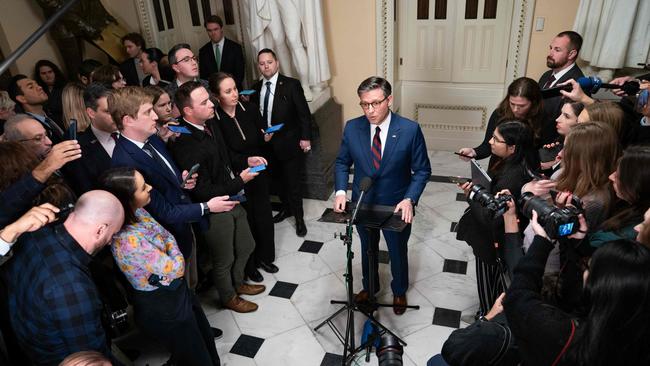
How could Mr Johnson lose the speaker election?
Mr Johnson has almost no margin for error. Republicans are expected to have a narrow 219-215 majority on January 3, and Democrats will all be voting for Jeffries.
One Republican – Rep. Thomas Massie (R., Ky.) – has said he would oppose Mr Johnson, and several others have said they are undecided. All it would take to cost Mr Johnson the speakership is for one more House Republican to vote for a different person, assuming all Democrats oppose him.
But it is unclear whether any other candidate could win a majority. It took three weeks of failed votes for other candidates before House Republicans elected Mr Johnson in the fall of 2023.
What happens if no speaker is quickly elected?
Without a speaker, members can’t be sworn in, and the House can’t organize itself. A law dating to the first Congress in 1789 requires the election of the speaker to precede any other business, including the swearing in of new members, the formation of committees and the passage of any legislation. The failure to elect a speaker could also delay the certification of Trump’s Electoral College victory, which by law is scheduled for January 6.
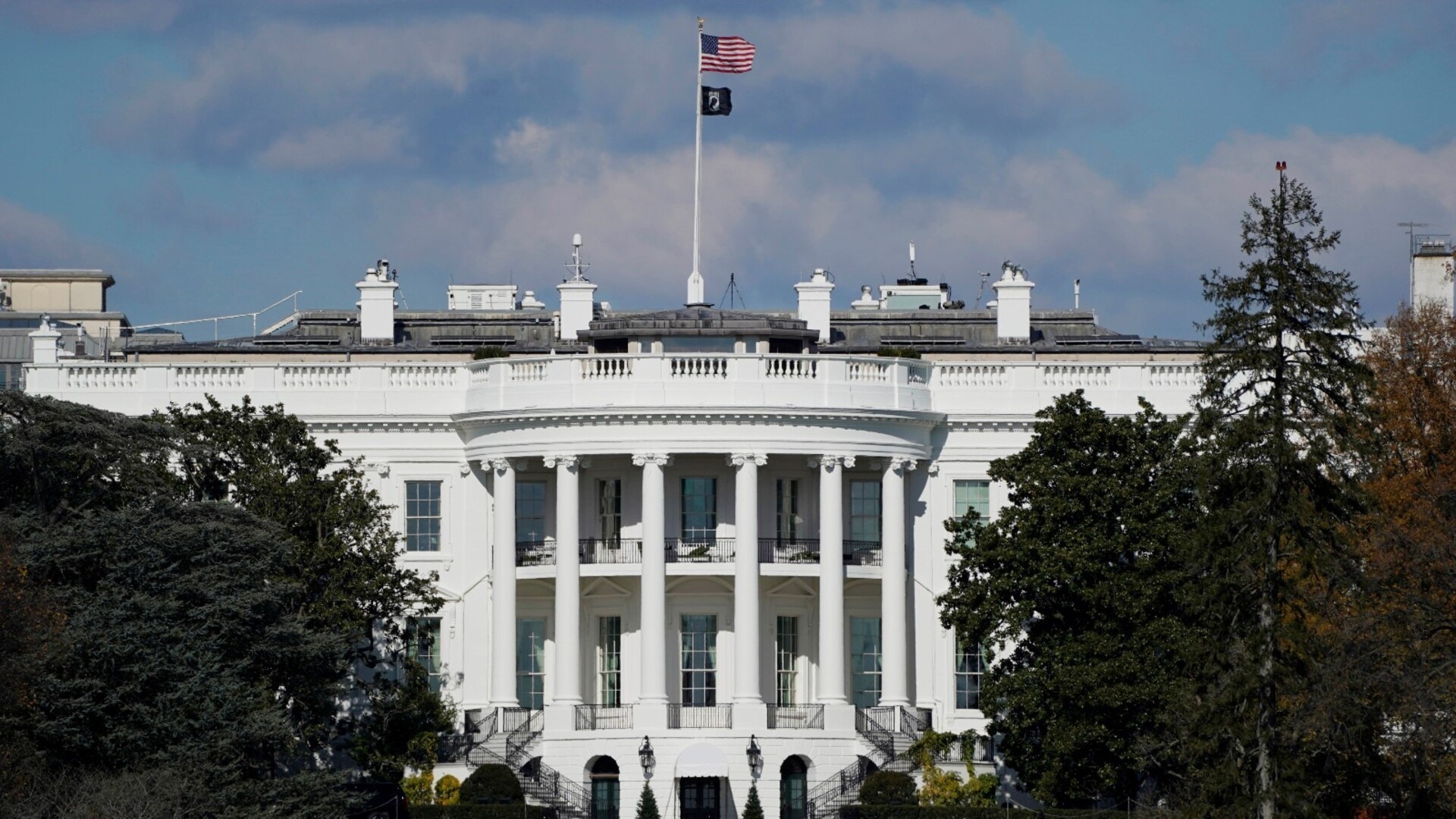
Who are the key players in the speaker vote on January 3?
Trump: Mr Trump endorsed Mr Johnson for speaker, boosting his prospects. But the president-elect’s support isn’t a guarantee that Mr Johnson can lock up the needed votes. Mr Johnson has been calling skeptical Republican lawmakers, trying to tamp down their concerns about his leadership.
Massie: Mr Massie said he respects Mr Trump but wasn’t swayed by his endorsement of Mr Johnson. As long as Mr Massie is determined to vote for someone else for speaker, Mr Johnson can afford to lose only one more vote. This math gives all other members of the Republican conference enormous leverage to make demands of Mr Johnson in exchange for their votes.
Rep. Andy Harris (R., Md.): Mr Harris, who chairs the conservative House Freedom Caucus, has said he is uncertain of how he will vote. Mr Harris has concerns about government spending, and he wants Johnson to commit to structural changes, including an overhaul of the amendment process, and giving priority to internal GOP debate before bills are introduced on the floor. He told The Wall Street Journal that a “significant number” of House Freedom Caucus members are similarly unconvinced.
Rep. Chip Roy (R., Texas): Mr Roy is a prominent member of the House Freedom Caucus, who, like Mr Massie, endorsed Florida Gov. Ron DeSantis over Mr Trump in the 2024 GOP presidential primary. Mr Roy helped lead opposition against a stopgap spending bill that Mr Johnson negotiated with Democrats in December. He also opposed a slimmed-down version of the bill that included a debt-ceiling increase Mr Trump wanted. He hasn’t said how he will vote for speaker.
Rep. Victoria Spartz (R., Ind.): Ms Spartz has said she is undecided on whether to vote for Mr Johnson. On Monday, she called for the next speaker to create temporary structures for the House to initiate government spending audits. Mr Johnson said he recently spoke with her.
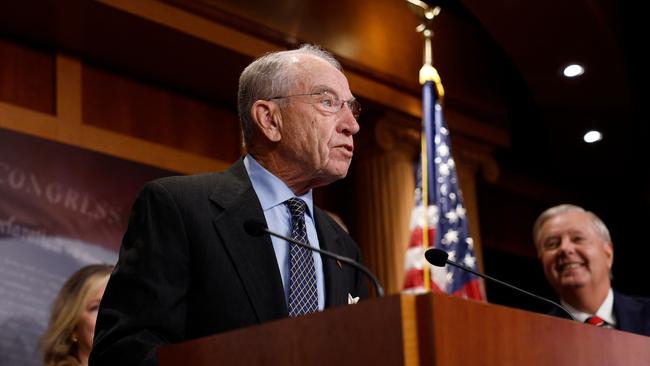
How could Trump’s certification on January 6 as president be affected by a delay?
If no speaker is elected by January 6, Congress likely won’t be able to ratify Trump’s election or the election of Vice President-elect JD Vance. If there is still no speaker, no functioning House, and no certification by Inauguration Day on Jan. 20, then the new GOP-controlled Senate’s president pro-tempore, 91-year-old Sen. Chuck Grassley (R., Iowa), would become president, according to the presidential line of succession.
Mr Johnson’s allies are warning fellow Republicans to stay united in support of Mr Johnson to avoid such an unprecedented, self-inflicted crisis.
The Wall Street Journal


